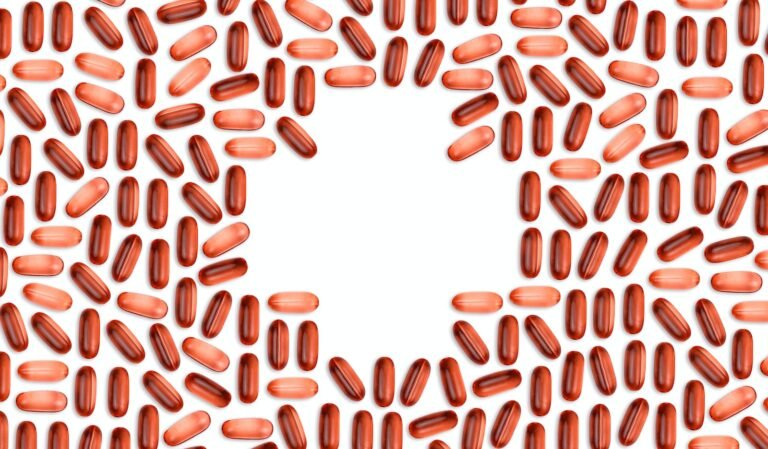Discovering the Healing Properties of Homeopathy in Natural Medicine
Introduction to Homeopathy
What is homeopathy?
What is homeopathy? Homeopathy is a form of alternative medicine that was developed in the late 18th century by Samuel Hahnemann, a German physician. It is based on the principle of “like cures like,” which means that a substance that causes symptoms in a healthy person can be used to treat similar symptoms in a sick person. Homeopathic remedies are highly diluted substances derived from plants, minerals, or animals. The dilution process is believed to enhance the healing properties of the substance while minimizing any potential side effects. Homeopathy is a holistic approach to healing, taking into account the physical, mental, and emotional aspects of an individual to promote overall well-being. Many people turn to homeopathy as a natural and gentle alternative to conventional medicine, seeking its potential benefits in treating a wide range of health conditions.
History of homeopathy
The history of homeopathy dates back to the late 18th century when it was developed by a German physician named Samuel Hahnemann. Hahnemann was dissatisfied with the harsh medical practices of his time, which often involved bloodletting and the use of toxic substances. He sought to find a gentler and more effective approach to healing, leading him to discover the principles of homeopathy. Hahnemann believed that “like cures like,” meaning that a substance that causes symptoms in a healthy person can be used to treat similar symptoms in a sick person. This concept, known as the Law of Similars, forms the foundation of homeopathy. Over the years, homeopathy has gained popularity and recognition as a holistic and natural form of medicine, offering a gentle yet powerful approach to healing various ailments.
Principles of homeopathy
The principles of homeopathy form the foundation of this alternative healing practice. Homeopathy is based on the belief that “like cures like,” meaning that a substance that can cause symptoms in a healthy person can also stimulate the body’s natural healing response to alleviate those same symptoms in a sick person. Another key principle is the concept of individualization, where each person’s unique symptoms and overall health are taken into account when prescribing a homeopathic remedy. Homeopathy also emphasizes the use of highly diluted substances, which are believed to enhance the healing properties of the remedies while minimizing any potential side effects. By adhering to these principles, homeopathy aims to stimulate the body’s innate ability to heal itself and restore balance.
Understanding the Concept of Vital Force
Definition of vital force
The vital force is a fundamental concept in homeopathy and natural medicine. It refers to the innate energy or life force that exists within every living organism. According to homeopathic principles, this vital force is responsible for maintaining the body’s overall health and balance. It is believed that when the vital force is disrupted or imbalanced, it can lead to the manifestation of physical, mental, or emotional symptoms. Homeopathy aims to stimulate and support the vital force, allowing it to restore harmony and promote healing within the body. By understanding and working with the vital force, homeopathy seeks to address the root cause of illness rather than merely treating the symptoms.
Role of vital force in homeopathy
The role of the vital force is fundamental in homeopathy, as it forms the basis of the entire healing process. According to homeopathic principles, the vital force is an innate energy or life force that exists within every individual. It is responsible for maintaining the body’s balance and overall well-being. When the vital force is disrupted or imbalanced, it can lead to the manifestation of physical, mental, or emotional symptoms. Homeopathy aims to stimulate and strengthen the vital force, allowing it to restore harmony and initiate the healing process. By addressing the underlying imbalance rather than merely suppressing symptoms, homeopathy seeks to promote holistic healing and long-term wellness.
How vital force affects health
The concept of vital force is central to understanding the principles of homeopathy and its impact on health. In homeopathic philosophy, vital force refers to the life energy or vital energy that exists within every living organism. It is believed that this vital force is responsible for maintaining the overall balance and harmony of the body, mind, and spirit. When the vital force is in a state of equilibrium, the individual experiences good health and well-being. However, disruptions or imbalances in the vital force can lead to the manifestation of physical, mental, or emotional symptoms. Homeopathy aims to stimulate and restore the vital force, allowing the body to heal itself naturally. By addressing the underlying imbalance and supporting the vital force, homeopathy offers a holistic approach to healing and promoting overall wellness.
Homeopathic Remedies and Potentization
Types of homeopathic remedies
Types of homeopathic remedies vary greatly, offering a wide range of options for individuals seeking natural healing. These remedies can be classified into different categories based on their source and preparation method. The most common type is plant-based remedies, which are derived from various herbs, flowers, and plants. Animal-based remedies, derived from substances like venom or minerals, are also utilized in homeopathy. Additionally, there are remedies made from minerals and metals, as well as those derived from disease products. Each type of remedy has its own unique healing properties and is carefully selected based on the individual’s specific symptoms and needs. The diversity of homeopathic remedies ensures that there is a suitable option for everyone seeking a holistic approach to their health and well-being.
Process of potentization
The process of potentization is a fundamental aspect of homeopathy that distinguishes it from conventional medicine. It involves a unique method of preparing remedies by diluting and succussing (vigorous shaking) substances derived from plants, minerals, or animals. This process is believed to enhance the healing properties of the original substance while minimizing any potential toxicity. The dilution is typically repeated multiple times, resulting in highly diluted solutions that are believed to retain the energetic imprint of the original substance. Homeopaths believe that this potentization process not only enhances the therapeutic effects but also minimizes any potential side effects, making homeopathic remedies safe and gentle for use.
How remedies are prepared and diluted
In homeopathy, remedies are prepared through a unique process known as potentization. This involves diluting a substance derived from plants, minerals, or animals in a specific manner. The dilution is typically done with water or alcohol, and the mixture is then vigorously shaken or succussed. This process is believed to enhance the medicinal properties of the substance while minimizing any potential toxicity. The dilution and succussion are repeated multiple times, resulting in different potencies or strengths of the remedy. The higher the potency, the greater the dilution and the more potent the remedy is believed to become. This method of preparation is based on the principle that the more a substance is diluted and succussed, the more it stimulates the body’s vital force to heal itself.
Efficacy of Homeopathy in Treating Chronic Diseases
Case studies on chronic disease treatment
In the realm of natural medicine, homeopathy has gained recognition for its potential in treating chronic diseases. Case studies have provided valuable insights into the effectiveness of homeopathic remedies in managing various long-term health conditions. For instance, a study published in the Journal of Alternative and Complementary Medicine examined the use of homeopathy in treating patients with chronic migraines. The results showed a significant reduction in the frequency and intensity of migraines, along with improvements in overall well-being. Another case study focused on individuals suffering from rheumatoid arthritis, where homeopathic treatments were found to alleviate pain and inflammation, enhancing the quality of life for these patients. These examples highlight the promising healing properties of homeopathy in the realm of natural medicine, offering potential alternatives for those seeking long-term relief from chronic diseases.
Mechanism of action in homeopathy
The mechanism of action in homeopathy is a topic of ongoing debate and research. Homeopathy is based on the principle of “like cures like,” where a substance that can cause symptoms in a healthy person is diluted and potentized to stimulate the body’s natural healing response. This process involves serial dilution and succussion, which is believed to enhance the energetic properties of the remedy. Critics argue that the extreme dilutions used in homeopathy render the remedies devoid of any active molecules, and any observed effects are merely due to a placebo effect. However, proponents of homeopathy suggest that the remedies work on a subtle energetic level, influencing the body’s vital force or life energy. While the exact mechanism of action in homeopathy remains elusive, many individuals have reported positive outcomes and improved well-being through its use. Further research is needed to fully understand the underlying mechanisms and potential benefits of homeopathy in natural medicine.
Comparison with conventional medicine
Comparison with Conventional Medicine
When comparing homeopathy with conventional medicine, it becomes evident that these two approaches to healing differ significantly in their principles and methods. Conventional medicine, also known as allopathic medicine, focuses on treating symptoms by using pharmaceutical drugs or surgical interventions. It relies heavily on scientific evidence and clinical trials to validate its effectiveness. On the other hand, homeopathy takes a holistic approach, aiming to stimulate the body’s innate healing abilities by using highly diluted substances derived from natural sources. Unlike conventional medicine, homeopathy emphasizes individualized treatment, considering the physical, mental, and emotional aspects of a person. While conventional medicine often provides immediate relief, homeopathy aims to address the root cause of the ailment, promoting long-term healing and overall well-being. Despite their differences, both approaches have their merits and can be complementary in certain situations, offering patients a wider range of options for their healthcare needs.
Safety and Side Effects of Homeopathic Treatments
Safety profile of homeopathic remedies
The safety profile of homeopathic remedies is a topic of great interest and debate within the field of natural medicine. Homeopathy is based on the principle of “like cures like,” where highly diluted substances are used to stimulate the body’s innate healing abilities. One of the key advantages of homeopathy is its gentle nature and minimal side effects. Due to the high dilution of the remedies, they are considered safe for use in all age groups, including infants, pregnant women, and the elderly. However, it is important to note that individual reactions to homeopathic remedies may vary, and it is always recommended to consult with a qualified homeopath or healthcare professional before starting any treatment.
Common side effects and their management
Common side effects of homeopathic treatments are generally mild and temporary. These side effects may include a temporary worsening of symptoms, known as a “healing crisis,” which is actually a positive sign that the body is responding to the treatment. Other common side effects may include a slight increase in symptoms, such as a headache or fatigue, as the body adjusts to the remedy. These side effects usually subside on their own within a short period of time. It is important to note that homeopathic remedies are highly individualized and tailored to each person’s specific needs, so side effects may vary from person to person. If any side effects persist or become bothersome, it is recommended to consult with a qualified homeopathic practitioner who can provide guidance and support in managing them effectively.
Interactions with other medications
Interactions with other medications can be a crucial consideration when incorporating homeopathy into a natural medicine regimen. While homeopathic remedies are generally safe and gentle, it is important to be aware of potential interactions with conventional medications. Some homeopathic remedies may enhance or interfere with the effects of certain medications, leading to either an increased or decreased efficacy. Therefore, it is advisable to consult with a healthcare professional or a qualified homeopath before combining homeopathy with any prescribed medications. This will ensure a comprehensive understanding of potential interactions and allow for personalized recommendations to optimize the healing process. By taking a proactive approach, individuals can safely and effectively integrate homeopathy into their natural medicine routine while minimizing any potential risks.
Criticism and Controversies Surrounding Homeopathy
Scientific skepticism towards homeopathy
Scientific skepticism towards homeopathy has been a topic of intense debate within the medical community. Critics argue that the principles of homeopathy, such as the use of highly diluted substances and the concept of “like cures like,” lack scientific plausibility and contradict well-established principles of chemistry and pharmacology. They contend that the purported healing effects of homeopathic remedies are merely a result of placebo effects or natural healing processes. Skeptics often point to the lack of robust scientific evidence supporting the efficacy of homeopathy, with many studies showing no significant difference between homeopathic treatments and placebos. Despite these criticisms, proponents of homeopathy argue that the holistic approach and individualized treatment plans offered by homeopathic practitioners can provide benefits to patients, even if the underlying mechanisms are not fully understood or supported by conventional scientific methods.
Placebo effect or genuine healing?
The debate surrounding the efficacy of homeopathy often centers on whether its healing properties are a result of the placebo effect or genuine therapeutic benefits. Critics argue that the perceived effectiveness of homeopathic remedies is merely a placebo response, where patients experience improvements due to their belief in the treatment rather than any inherent medicinal properties. However, proponents of homeopathy contend that its healing effects go beyond mere placebo, pointing to numerous studies and anecdotal evidence that suggest its ability to stimulate the body’s natural healing mechanisms. While the placebo effect may play a role in some cases, the growing body of research exploring the unique principles and mechanisms of homeopathy suggests that there may be more to this alternative form of medicine than initially meets the eye.
Regulatory challenges and legal status
Regulatory challenges and legal status have long been a topic of debate and contention within the field of homeopathy. While many proponents argue for its efficacy and safety, skeptics and regulatory bodies have raised concerns about the lack of scientific evidence and standardized regulations. In several countries, homeopathic remedies are classified as over-the-counter drugs, allowing them to be sold without a prescription. However, the legal status of homeopathy varies widely across different jurisdictions, with some countries imposing stricter regulations and others even banning its practice altogether. The lack of consistent regulations and varying legal statuses further contribute to the ongoing challenges faced by homeopathy as a recognized form of natural medicine.
undefined









